US Republicans in a letter to Biden vow to block any sanctions relief for Iran
With Iran and the remaining parties to the 2015 nuclear deal resuming the stalled talks in Vienna aimed at lifting cruel sanctions on Iran, Republicans in the US have vowed to block any sanctions relief for Iran.
According to a report in The National, a group of 25 Republican Congress members, in a letter to the US President Joe Biden this week, accused the White House of “withholding information” from Congress about the nature of negotiations with Tehran.
“Despite over a dozen letters by members of the Republican Study Committee asking for information on Iran sanctions enforcement, your administration has continued to leave Congress in the dark regarding its plans to weaken sanctions enforcement and provide sanctions relief to Iran,” the letter read.
The Republican Study Committee has 150 members, who have been the vocal advocates of former US President Donald Trump’s ‘maximum pressure’ campaign against Iran.
In the letter, the signatories remind the Biden administration of the power of Congress to re-impose sanctions on Iran, which again points to the duality of US stance on Vienna talks.
“We are writing to remind you that the power to regulate commerce with foreign nations and hence the ability to enact economic sanctions resides in Congress,” the letter adds.
The seventh round of talks between Iran and the P4+1 grouping — Britain, France, Russia, and China plus Germany — aimed at lifting the draconian sanctions imposed on Iran by the previous US administration resumed in the Austrian capital on Monday.
Ali Baqeri-Kani, who is leading the Iranian delegation at the talks, made a strong case for lifting the US sanctions before moving on to discussion of nuclear-related issues.
He asserted that Iran has confirmed its full compliance with obligations under the deal and underlined his country’s determination to reach an agreement that is acceptable to the people of Iran.
Enrique Mora, the top EU representative at the talks, said there is a sense of urgency of putting the deal back on track, but pointed out many difficult political and technical issues to be sorted out.
Mikhail Ulyanov, Russian envoy to the UN nuclear agency, said participants agreed on “further immediate steps” during the fresh round of negotiations which he said “started quite successfully".
On Tuesday, participants held expert-level meetings of the working group formed exclusively to deal with the removal of US sanctions against Iran.
On Wednesday, another working group dealing with nuclear issues is expected to hold meetings.
While reports coming from Vienna inspire hope that the remaining signatories to the nuclear deal are willing to discuss with the seriousness it deserves, news coming from the US is far from assuring.
The Republican signatories to the letter threatened to block any relief if they win a majority in the US House of Representatives in next year’s midterm elections.
“When Republicans return to the majority soon, we look forward to re-asserting Congress's authority over economic sanctions by passing the Maximum Pressure Act and circumscribing the ability of your administration, like the Obama administration before it, to lift sanctions and abuse waiver and license authorities to provide sanctions relief to Iran,” the letter said.
In a tweet on Tuesday, US Senator from state of Arkansas, Tom Cotton also warned that the deal will be “torn up when Republicans take power again”.
“President Biden has sent his team to Vienna to negotiate an American surrender to the ayatollahs. This administration is unwilling to hold the Iranian regime accountable for its nuclear blackmail efforts, support for terrorism, and attacks on American troops and our allies,” Cotton wrote.
“A Biden-Iran nuclear deal will be even worse than what came before it—and will be torn up when Republicans take power again,” he added.
President Biden has sent his team to Vienna to negotiate an American surrender to the ayatollahs. This administration is unwilling to hold the Iranian regime accountable for its nuclear blackmail efforts, support for terrorism, and attacks on American troops and our allies.
— Tom Cotton (@SenTomCotton) November 29, 2021
White House press secretary Jen Psaki told reporters on Monday that the US “objective has not changed”.
“Our objective has not changed, it remains a mutual return to full compliance with the JCPOA, this is the best available option to restrict Iran’s nuclear program and provide a platform to address Iran’s destabilizing conduct,” she said.
Importantly, it was the US that abandoned the deal in May 2018, followed by reinstatement of sanctions on Iran. Tehran, however, chose to stick to its share of commitments, despite the failure of Europeans to salvage the deal under the US pressure.
China slams US as ‘war-addicted’ threat to global security
China ‘firmly opposes’ US military aid to Taiwan
VIDEO | Press TV's News Headlines
President Yoon Suk Yeol to be removed from office
At least 19 Gazans killed by Israeli airstrikes since dawn: Medics
Leader: Iran neither has nor needs proxy forces
US fighter aircraft shot down ‘in friendly fire’ amid aggression on Yemen
Yemeni FM: Israel’s sponsors accountable for ongoing aggression on Sana’a


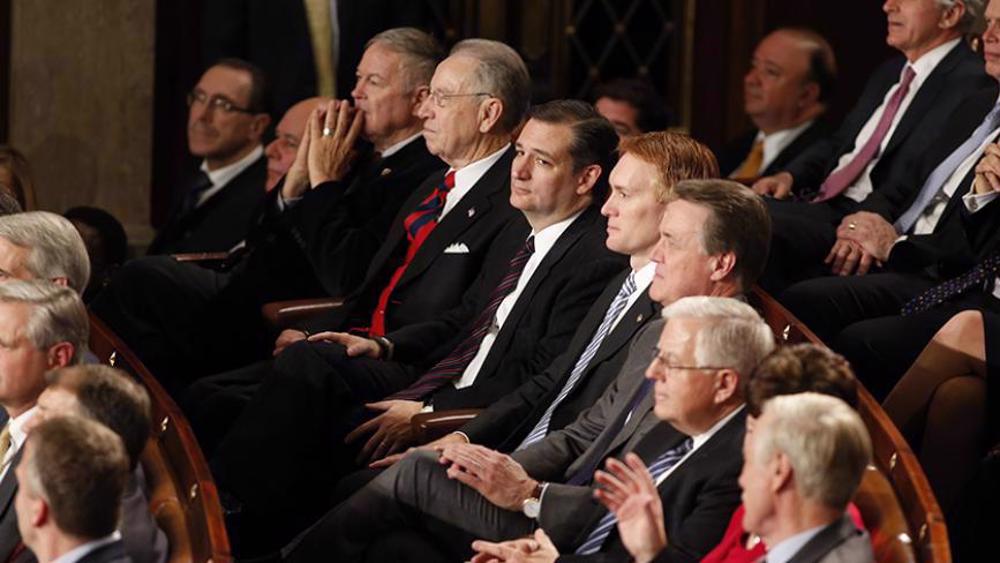
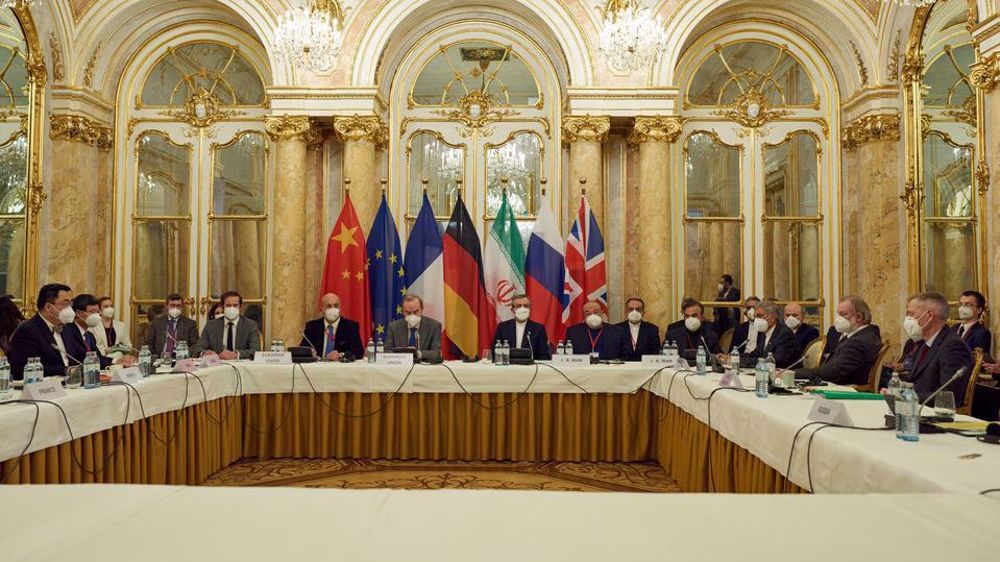






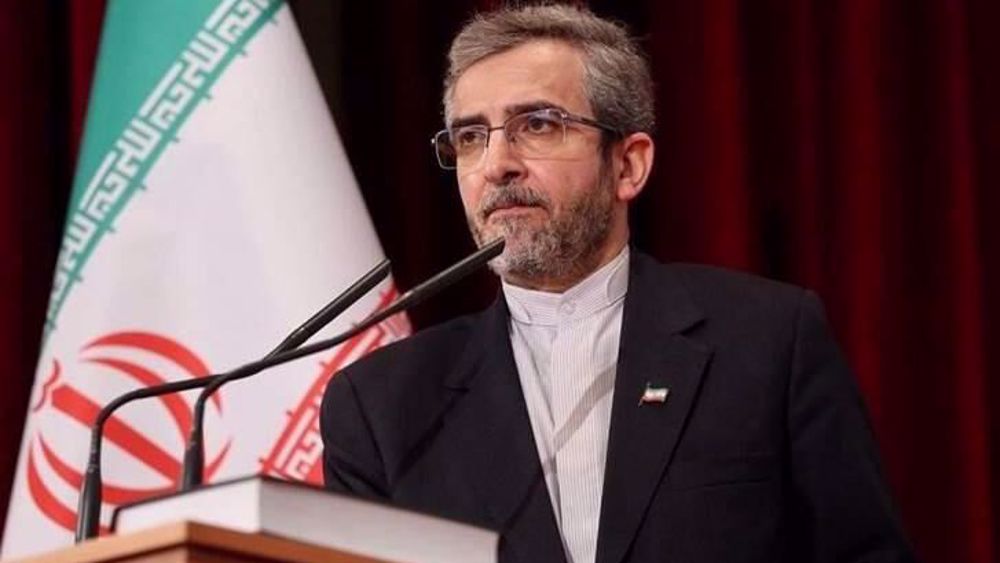
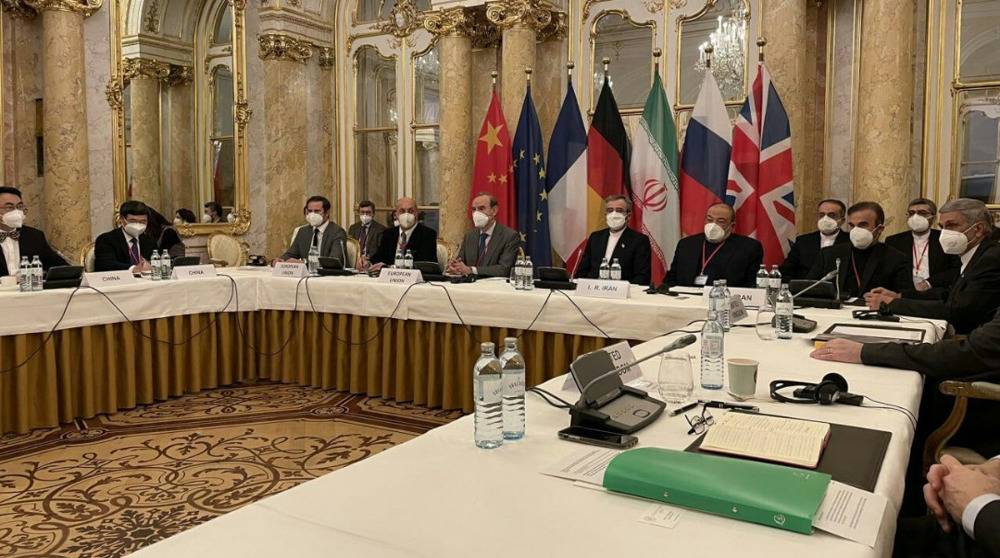
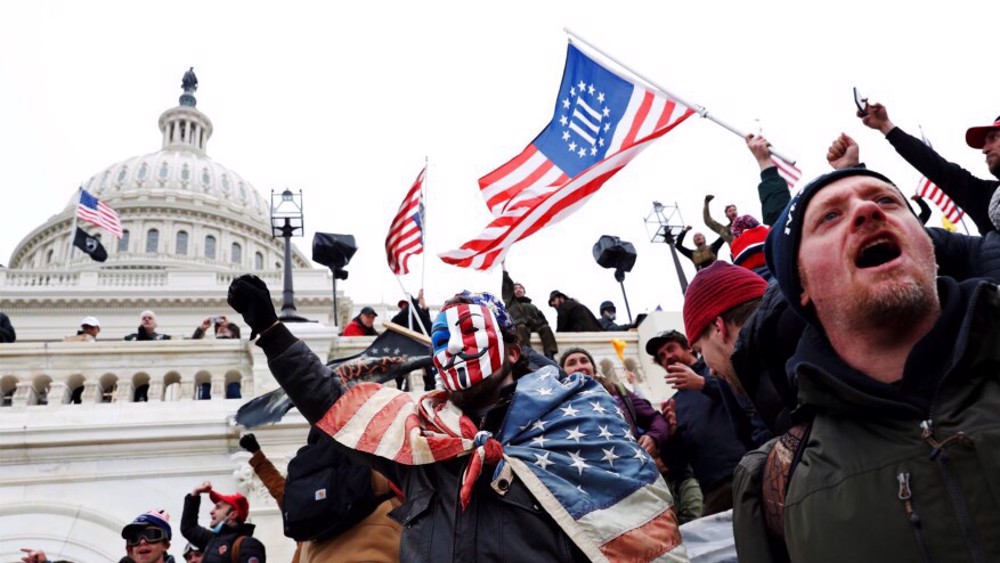
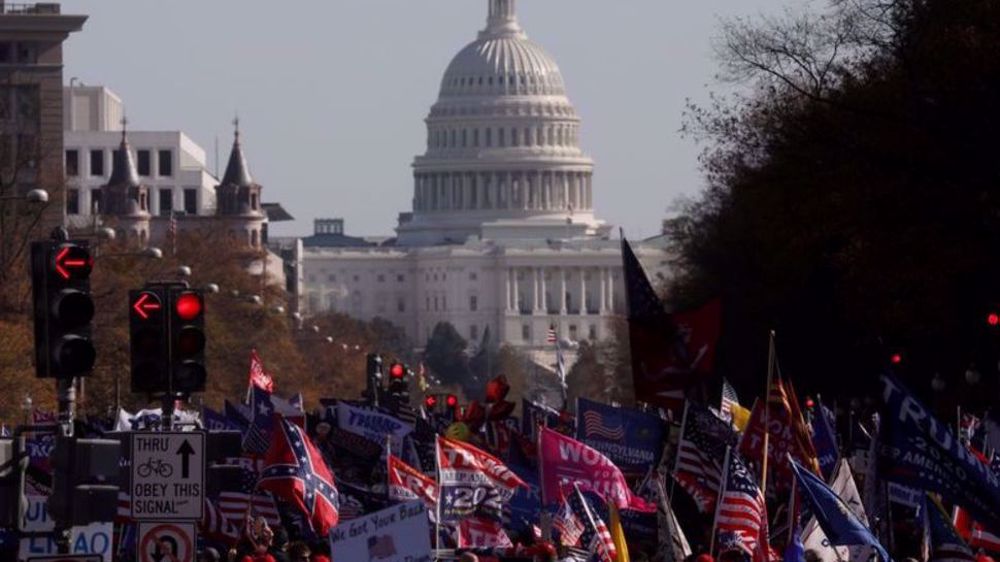
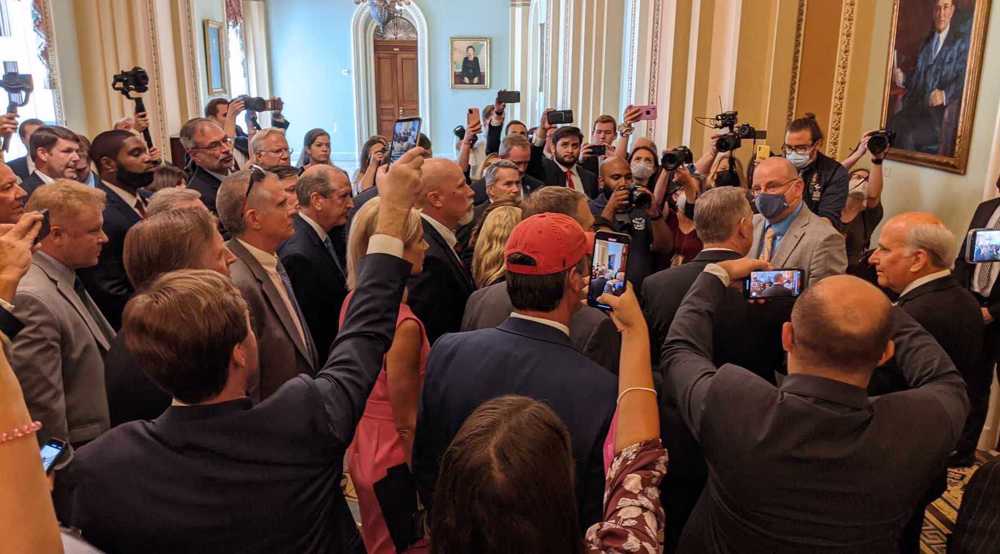

 This makes it easy to access the Press TV website
This makes it easy to access the Press TV website